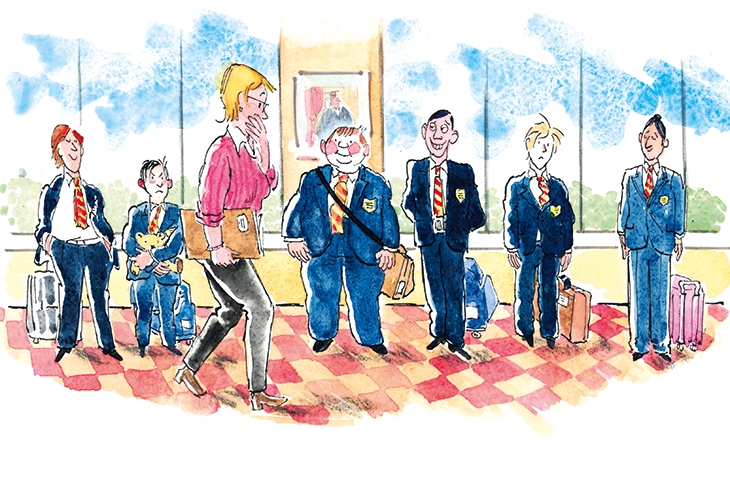When choosing a boarding school for your child, what’s the most important thing to bear in mind? For some it will be the academic results, for others the location, the range of subjects or the variety of extra-curricular activities on offer. But for many, a big concern will be the pastoral side: who will be carrying out the parental role when your child is living away from home?
At the majority of boarding schools, matrons bear most of that responsibility. ‘When you take on the responsibility of someone else’s child, it’s very daunting,’ says Rachael McGuire, who has been matron of Matheson’s House at Glenalmond College in Perthshire for 24 years, and is in charge of 40 boys aged between 13 and 18. ‘Consistency is the most important thing — that, and getting a child’s trust. I think of the house as a jigsaw, and there’s a place for everybody in it. You just have some children who need a little more help than others.’
For many students, the first couple of weeks prove the most difficult, as they adjust to an environment that might be completely different from anything they’ve experienced before. While the adult professionals can be usefully supportive, often it’s other students who do most to help the newcomers settle in.
Jane Renyard is a matron at St Aidan’s, one of the girls’ houses at Ampleforth College. ‘We endeavour to create a family-like environment which allows the older students to help in taking care of the younger students in the same way an elder sibling would,’ she says. ‘I have always thought that the care shown by older students to younger pupils is one of the most endearing aspects of a new term. Older students are usually very generous with their time.’
And what do the parents think? ‘With all the carry-on in the world now, they’re all a bit worried about what goes on,’ says McGuire. ‘But if the parents know that you take the role seriously, then they trust you. A lot of people are relaxed about leaving their children here, as they know that they will be well looked after.’
It’s tempting, when your child has left home for the first time, to want to check in and make sure that everything is going well. But that isn’t necessarily the most helpful thing for the child. ‘Parents must allow their children time to settle in, make new friends and generally find their feet,’ says Renyard.
On the whole, it appears that parents are more concerned now with pastoral care than they used to be. Caty Jacques, deputy head (pastoral) at Hurstpierpoint College in West Sussex, agrees. ‘I’ve worked in boarding schools for 16 years, and parents are definitely more involved than they were,’ she says. ‘There used to be a culture of parents handing their kids over to a school, and then expecting us to churn out a finished product at the end. Now they want to be more involved, and they love visiting and coming to support at sports matches and so on.’
Does this more hands-on approach from parents create difficulties? ‘All of our students are either weekly boarders or flexi-boarders who do three days a week, so there tends not to be such a problem with children not settling in,’ Jacques says. ‘The only time that problems do emerge is with those parents who try to fight all their kids’ battles for them. Children have to learn to stand on their own two feet, so often, parents aren’t doing them a favour by doing that. But this isn’t something we often encounter.’
Of course, it’s not only when a child is new at school that they might have problems, or feel homesick. ‘It’s very easy to know if something’s wrong’, says McGuire. ‘You just watch them come down in the morning and look at their faces. You can see immediately from a child’s face if something’s not right.’ Many boarding schools — particularly those that are more remote — have something of a village feel to them, and this ethos helps with the pastoral side. ‘Everybody works together, and there’s always someone at the end of the phone if you need a second opinion,’ says McGuire.
Caty Jacques agrees. ‘The boys certainly appreciate the homely presence that a matron provides. She’s the person who provides a sense of constancy and stability in the house. But there are plenty of layers of support, both for staff and for students, and it’s important that support systems are in place. If anybody feels that they’re on their own, it is a lot of pressure, so communication is key.’
So when you look around a school and think about what might be best for your child, bear in mind that although the housemasters and mistresses keep the show on the road, it’s often matron who’s in the background, making sure that everyone is as happy as they can be. ‘Some children just need a bit of gentleness to help them come out of their shell,’ says McGuire. ‘Children are a bit like flowers, and it’s lovely to watch them bloom.’







Comments